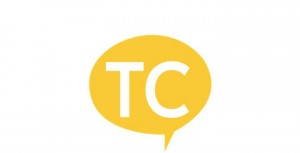Talk About TC is a collective impact initiative, organized by the Testicular Cancer Society, to end deaths from testicular cancer in the state of Ohio by the year 2020.
Our 3 Critical Areas for Success

Awareness
Lack of awareness about testicular cancer and delays seeking care lead to late diagnosis, increased treatment burdens and unfortunate loss of life. This lack of awareness is one of the biggest challenges we face.
Testicular cancer is the leading cause of cancer in guys age 15-35, although it can occur at any age. This means that there are quite a few guys, especially in the high risk age group that need to know about testicular cancer.
So where do we start? With #TalkAboutTC
#TalkAboutTC is the community outreach platform that provides tools and messages to help reach men and educate them about testicular cancer. The basis of the platform is to provide simplified and consistent messaging that can easily be replicated via social media and traditional media platforms.
#TalkAboutTC can be used as a standalone platform that simply needs replication or #TalkAboutTC can be used to compliment or reinforce programs that are already in existence and offers opportunities for collaboration, co-promotion and co-branding.
#TalkAboutTC messaging involves not just testicular cancer awareness but also access to care and quality of care topics.

Access
Lack of insurance is one of the greatest barriers to access to care. Without access to care, awareness and early detection of testicular cancer becomes futile.
Testicular cancer is predominantly a young man’s disease, although it can occur at any age. As the leading cause of cancer in guys age 15-35, the median age at diagnosis is 33 and the median age at death from the disease is 41. Unfortunately, young males continue to have the highest rate of being uninsured and almost 50% of men age 18-34 report having no usual source of care.
The #TalkAboutTC campaign has teamed up with Get Covered America in order to provide a centralized location for Marketplace Heath Insurance Plan assistance and consistent messaging that is other than healthcare.gov.
Testicular cancer has traditionally been considered a young caucasian disease, as higher rates of diagnosis occur in the white non-Hispanic population. However, recent data suggests an increase incidence rate in the Hispanic population and mortality rates that are twice as high in the African-American population. Increasing access to care will help in overcome disparities.
Information about Marketplace Health Insurance Plans options can come from 3 main sources:
Websites
Direct Assistance (call centers, application assisters, insurance brokers, etc.)
Indirect Assistance (family, friends, doctor’s offices, employers, etc).
Among resources used by adults age 18-64 to get information about Marketplace Health Insurance Plans, approximately 50% used websites only, 30% used websites and other sources and 20% used only other sources.
Younger, male, white non-Hispanic and higher income individuals tend to gather their information from Websites. Older, female, nonwhite non-Hispanic, Hispanic and lower income individuals tend to gather their information from Direct Assistance and Indirect Assistance.
Using the resources of Get Covered America is vital in helping with Direct Assistance while the #TalkAboutTC campaign itself will help with Indirect Assistance via social media and other outlets.

Quality
Early detection via awareness and access to care by being insured are futile if the professionals treating testicular cancer patients do not have the experience to follow the well established treatment protocols and make crucial critical treatment decisions.
Men with suspected testicular cancer are usually referred to a urologist. Fortunately, there are less cases of testicular cancer per year than there are Board Certified urologists. However, this also means that not every urologist will even see a case of testicular cancer each year so their experience in treating these patients may not be optimal. This is also true for medical oncologists, surgeons, pathologists and radiologists.
Ohio was chosen as the pilot state for Talk About TC not just because the Testicular Cancer Society is located in Cincinnati but more importantly because every guy in Ohio is within a few hours drive of world-renowned testicular cancer experts. The Testicular Cancer Resource Center maintains a list of experts in the field of testicular cancer, which includes the programs at Indiana University and Cleveland Clinic. Likewise, The James at Ohio State University is a National Cancer Institute designated Comprehensive Cancer Center.
We highly recommend to treating physicians that if they have a patient diagnosed at a late stage or that has not responded to initial treatment that they seek advice from one of these experts.
If a guy requires a complex surgery called a retroperitoneal lymph node dissection (RPLND), then we highly encourage them to seek care from a highly experienced surgeon. Data from 2001-2008 indicate that over half of the RPLNDs are done in hospitals that perform 2 or fewer RPLNDs per year. A recent study indicated that for those applying for certification with the American Board of Urology from 2003 to 2013 only 3.4% of urologists documented doing a RPLND in their case logs. Of those that did log an RPLND, 75% logged the equivalent of 2 RPLNDs per year. Over 50% of all RPLNDs were done by surgeons that logged the equivalent of 4 or less RPLNDs per year. Three urologists logged 23% of all the RPLND cases showing a dramatic difference in individual surgeon volumes ranging from 2 to 118 RPLNDs per year.
We are certainly not saying that individual doctors are not capable of treating testicular cancer patients but treatment by more experienced physicians can help assure better outcomes. Talk About TC will help increase the number of referrals to regional centers of excellence as well as community education to reduce disparities in diagnosis and treatment.
Who should participate in #TalkAboutTC?
If you believe there is value in preventing men from dying from testicular cancer then you should get involved.
I’m ready to help!
What are Participants?
#TalkAboutTC participants range from individual grassroots advocates to partners that share the common agenda of wanting healthier employees, customers, members, patients, students and citizens.
The best thing is that you get to decide how involved you want to be.
MORE ON BEING A PARTICIPANT I’M IN!What are Sponsors?
#TalkAboutTC is about saving lives and not just about raising money. However, to be honest, without financial support we wouldn’t be able to reach our goals.
Our generous sponsors provide financial support via grant funding, monetary and/or in-kind donations, as well as, cause marketing and co-branding opportunities.
MORE ON BEING A SPONSOR I’m In!Why Me?
I don’t have the time, the money or any idea how I can help.
That’s OK! No one is expected to do something that is beyond their capabilities. As the organizers, we are responsible for finding ways for you to make an impact.
We will help uncover talents, leverages and resources that you may not even realize you have but that will be incredibly beneficial to the #TalkAboutTC initiative.
OK, I’M IN!Not ready to join?
Why not stay updated and decide later
We promise not to blow up your inbox.

